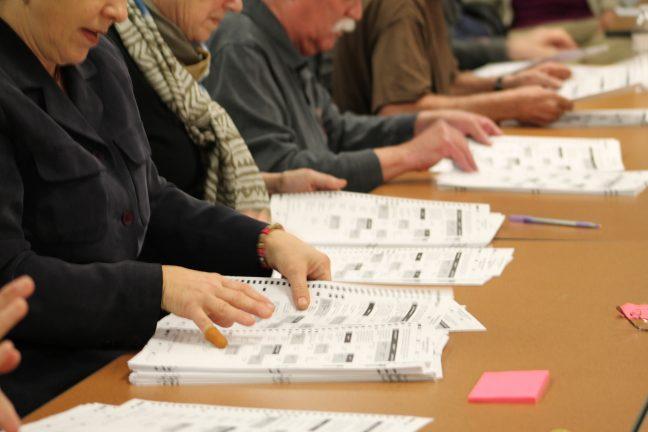Wisconsin voters will see a welfare reform question on their April 4 ballot.
The question is an advisory question, which means it is being used as a means to gather information about public opinion.
The question will ask, “Shall able-bodied, childless adults be required to look for work in order to receive taxpayer-funded welfare benefits?”
This question is non-binding, meaning no changes in state legislature will occur as a direct result of how people answer the question. Wisconsin Assembly Speaker Robin Vos and Senate Majority Leader Devin LeMahieu introduced the question, according to WISN.
Some question the wording of the question. In an email statement to The Badger Herald, University of Wisconsin Associate Professor of Human Development and Family Studies Sarah Halpern-Meekin said using the term “able-bodied, childless adults” is not a clear category of people.
Halpern-Meekin said it can include people who are going through the process of getting their disability benefits confirmed, which is a lengthy process. It can also include parents who may not be the legal guardians of their children.
She said not many people who receive government support fall into the category of “able-bodied, childless adults.” Most either have children, are disabled or are employed already.
According to Halpern-Meekin, the question being on the ballot is not likely to change policy.
“Wisconsin state law already requires that people search for employment to receive unemployment benefits or food assistance,” Halpern-Meekin said.
In an email statement to The Badger Herald, UW Professor of Public Affairs and Economics Timothy Smeeding said there is a lot of evidence that shows welfare does not work.
“In Arkansas, workfare for Medicaid even reduced work effort as failure to renew eligibility (by mail) denied beneficiaries access to critical prescription drugs that allowed them to work,” Smeeding said.
Smeeding said work supports like a higher minimum wage, subsidized child care, family leave and workforce training would all lead to higher employment and reduce the needs for income supports.
The April ballot will also include questions about two Wisconsin constitutional amendments focused on when or if defendants can make bail.


